
BAMC adapts to support greater San Antonio community during COVID-19 pandemic
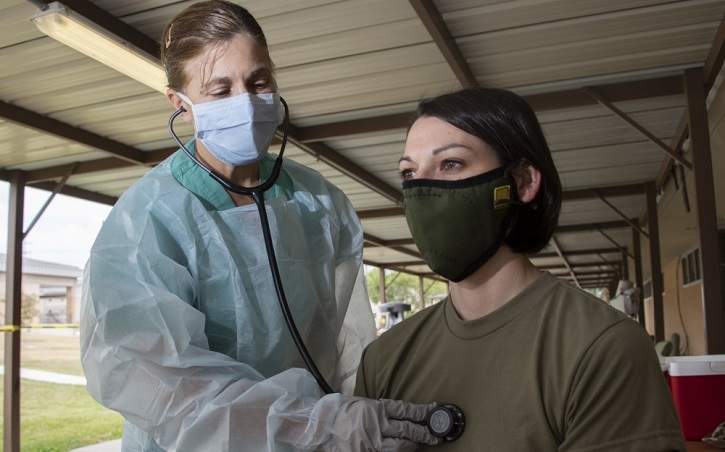
U.S. Army Col. April Critelli, physician’s assistant, screens a patient for COVID-19 at the McWethy Troop Medical Clinic, Fort Sam Houston, Texas, May 13, 2019. Critelli is the first medical Soldier to return to active duty from retirement during the COVID-19 crisis. (U.S. Army photo by Jason W. Edwards)
As COVID-19 surges across the nation, and specifically Texas, Brooke Army Medical Center has continued to provide care for local beneficiaries, and provide aid to the greater San Antonio community.
“Over the past few months, BAMC and the San Antonio Military Health System as a whole have agilely adapted to continue to provide service to our 250,000 active duty and military beneficiaries in a COVID-19 environment while sustaining our Level I trauma support of our region,” said Army Brig. Gen. Shan Bagby, BAMC commanding general.
From easing the city’s testing demand to taking on additional critically ill patients, BAMC’s response to this ongoing crisis has been “nothing short of amazing,” Bagby noted.
BAMC is the only Level I Trauma Center within the Department of Defense and one of two within San Antonio. Alongside University Health System, BAMC administers lifesaving care to more than 4,500 trauma patients each year, including 750 burn patients, from an area that stretches across 22 counties in Southwest Texas and encompasses 2.2 million people.
Of the over 4,500 trauma patients admitted each year, about 85 percent are community members without military affiliation. The Secretary of the Army Designee, or SECDES, program enables BAMC to receive civilian trauma patients in a military treatment facility.
Working alongside Southwest Texas Regional Advisory Council (STRAC), which coordinates the region’s trauma and disaster relief response, and University Health System (UHS), BAMC is fully integrated within the local trauma network, said Air Force Col. Patrick Osborn, BAMC’s deputy commander for surgical services.
With local hospitals nearing capacity, BAMC has been taking additional trauma patients through STRAC to ensure the region’s trauma response remains unaffected by the pandemic.
BAMC also provides community support through its drive-thru screening and testing operation. Operational since the earliest days of the COVID response, BAMC has eased the burden on the city’s overtaxed testing sites, screening over 9,100 patients and testing over 7,500 personnel as of July 7. Additional screening and testing is provided by the 59th Medical Wing on Joint Base San Antonio-Lackland and Joint Base San Antonio-Randolph.
For testing, BAMC uses the CDC-recommended COVID-19 test called a nasopharyngeal swab, which involves using a swab to take a sample from inside the nose. As of July 7, BAMC has processed more than 25,000 COVID-19 tests.
Additionally, technicians from Wilford Hall Ambulatory Surgical Center and the Department of Defense Food Analysis and Diagnostics Laboratory have volunteered their time and resources to assist the ongoing COVID-19 mission at BAMC, added Army Lt. Col. Robert Cybulski, Jr., director of microbiology, Department of Pathology and Area Laboratory Services (DPALS).
The Pharmacy Department has also stepped to the forefront to assist COVID response efforts. To ensure staff and patient safety and reduce the footprint within the hospital, BAMC implemented a curbside pharmacy service across the organization starting in late March. Over the course of just over two months, BAMC serviced over 89,500 vehicles and dispensed over 162,000 prescriptions. Since June 1, BAMC has processed over 97,500 prescriptions through its drop-off and pick-up in-house services.
BAMC also has been leveraging every virtual asset to its fullest extent in recent months in an effort to keep patients safe at home.
In response to the COVID-19 pandemic, the Virtual Medical Center at BAMC increased virtual health appointments from 16 percent of overall appointments in January 2020 to 52 percent in May 2020, said Army Lt. Col. Sean Hipp, director of the Virtual Medical Center, noting that Primary Care and Behavioral Health have been active users of virtual services.
Virtual appointments can be used for medication refill requests, lab and radiology results, cold and allergy symptoms, urinary tract infections and routine follow-up appointments in which a physical exam isn’t required.
The Virtual Medical Center is also exploring the expansion of tele-critical care support (TCC), Hipp said. This involves a network of providers and other specialists monitoring smaller wards, providing over watch and support for patients in intensive care units. With COVID-19, there’s a feasible tele-critical application at BAMC, he noted.
“On the readiness side, we already have a robust readiness clinic and the ability to see patients all over the world rapidly. Now, we are gaining a better understanding of what can be done over the phone or on video, which will lead to better access to care throughout the San Antonio Military Health System,” he said.
“BAMC will continue to assess and explore ways to support our beneficiaries and community during this ongoing national emergency,” the commanding general said.
“We are honored to serve our active duty, retirees, their family members and this tremendous community,” he said, “and we are proud to serve our nation as a premier readiness platform for our military medical personnel.”
DHA Director and Senior Enlisted Leader visit Branch Health Clinic Everett
Article
7/15/2020
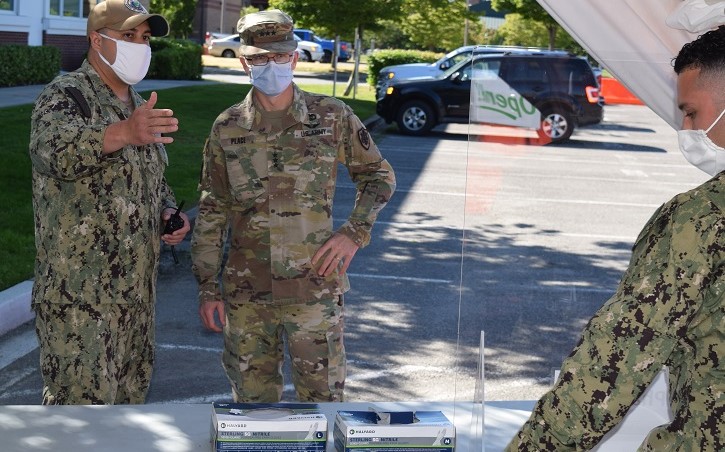
NHB, along with Branch Health Clinics Bangor, Everett and Puget Sound Naval Shipyard transitioned administration and management oversight to DHA in the fall of 2019.
DoD Leverages GEIS Respiratory Surveillance to Respond to COVID-19
Article
7/15/2020
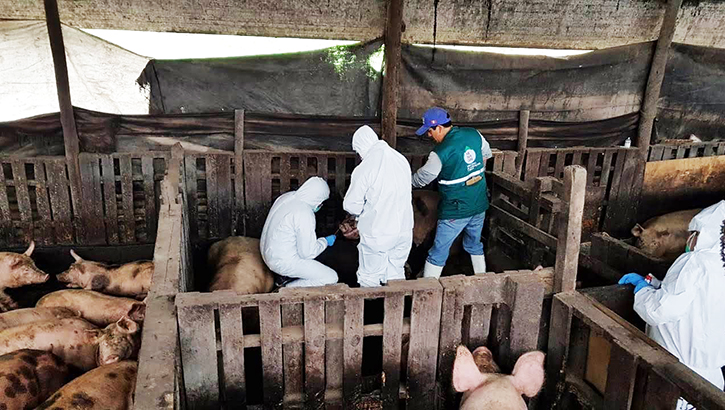
AFHSB’s Global Emerging Infection Surveillance (GEIS) program manages a global laboratory network to detect emergent diseases and track respiratory illnesses such as influenza.
Innovative RX pad creates path for prescribing mobile health technology
Article
7/15/2020
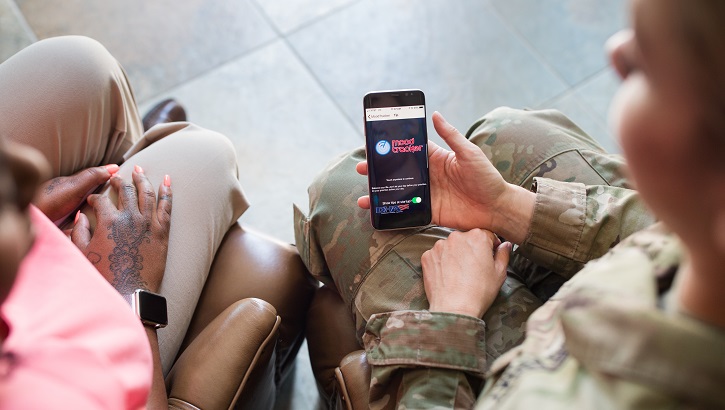
Technology and healthcare are constantly evolving fields.
Applying COVID-19 innovations to the future of MHS medicine
Article
7/14/2020
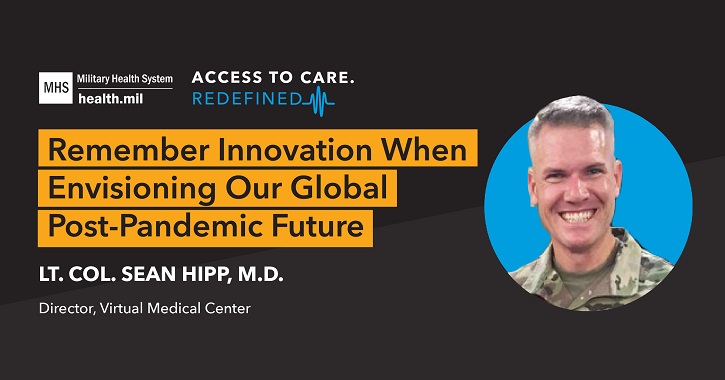
COVID-19 has already irrevocably changed how we deliver care and will continue to do so.
Life support training continues for MHS clinical staff
Article
7/14/2020
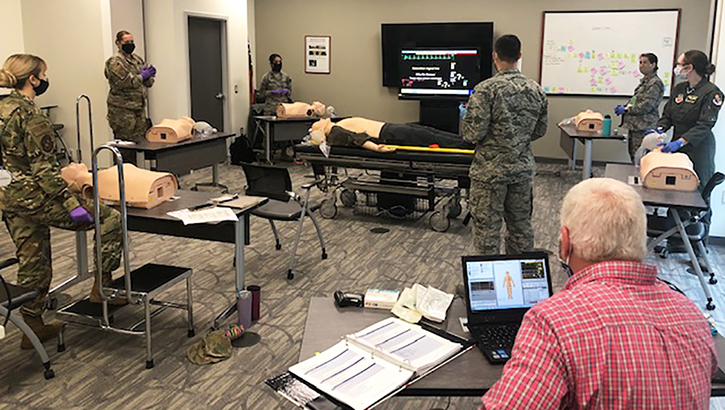
How do clinical staff social distance and deliver CPR training?
U.S. military deploys to Texas and California in support of COVID-19 operations
Article
7/14/2020
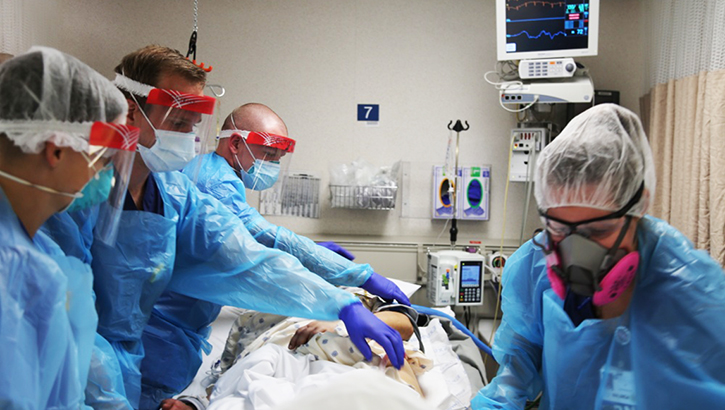
[A]pproximately 740 Department of Defense medical and support professionals from the Army, Navy and Air Force deployed to support COVID-19 operations in Texas and California.
COVID-19 Asymptomatic Testing Clinic opens at NMRTC Bremerton
Article
7/13/2020
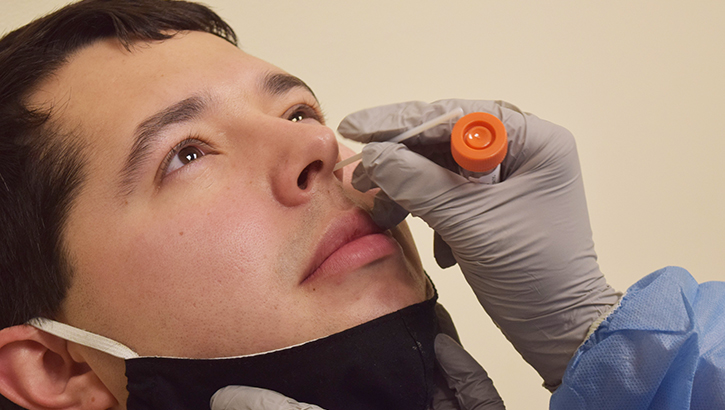
[S]tanding up the CAT clinic will assist in identifying asymptomatic COVID-positive individuals and assist the continual effort to stop the spread of the pandemic.
Convalescent Plasma Donation PSA featuring Lt. General Place
Video
7/10/2020
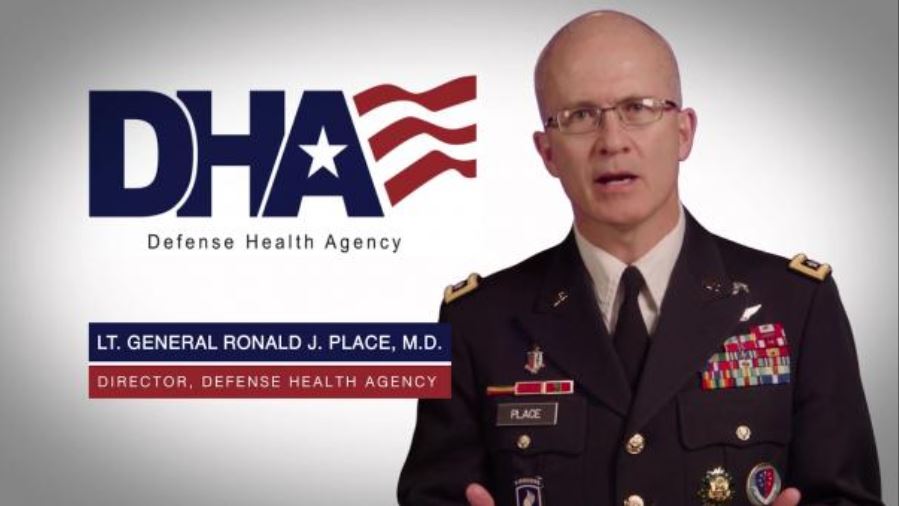
Lt. Gen Place asks servicemembers DoD-wide to consider dontating plasma in the fight against COVID-19.
For some, working from home brings neck and back pain
Article
7/10/2020
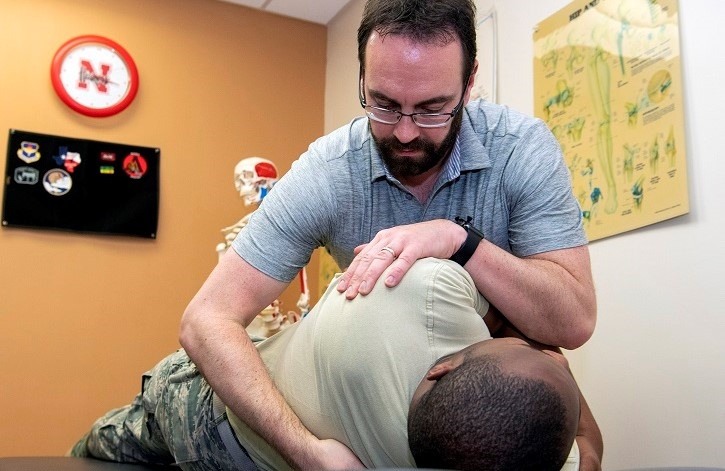
"[T]he most common complaint of teleworkers is neck and upper back pain between the shoulder blades."
DHA's new app assists providers with treating infectious diseases
Article
7/10/2020

This progressive web application provides faster updates to content and function than traditional apps.
New Invention Helps Protect Healthcare Workers During COVID-19 Pandemic
Article
7/9/2020
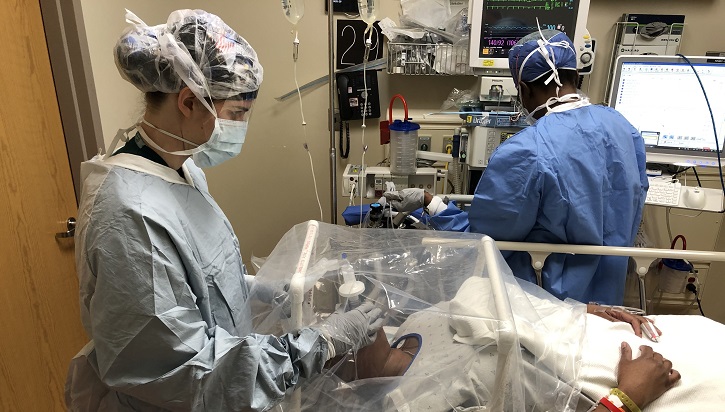
"[T]he team realized that while the CAMIC would function well for tracheostomy, its true use would be for intubation..."
Defending the Homeland: Fort Knox Safety Official Donates COVID-19 Convalescent Plasma to Help Others
Article
7/8/2020
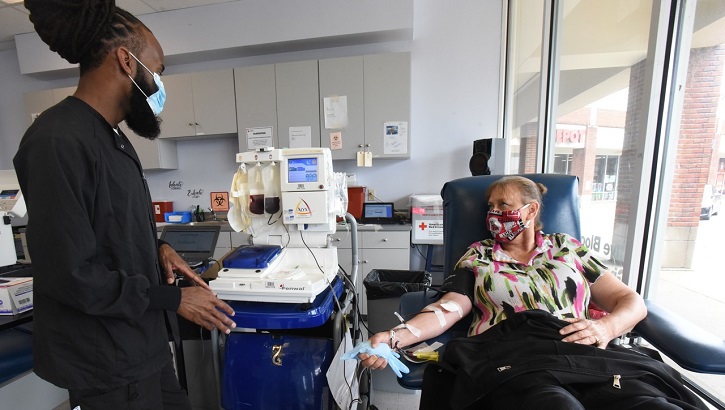
[T]he process involves a machine that uses three bags to collect and separate the plasma from the blood.
Summer’s here – stay safe!
Article
7/8/2020
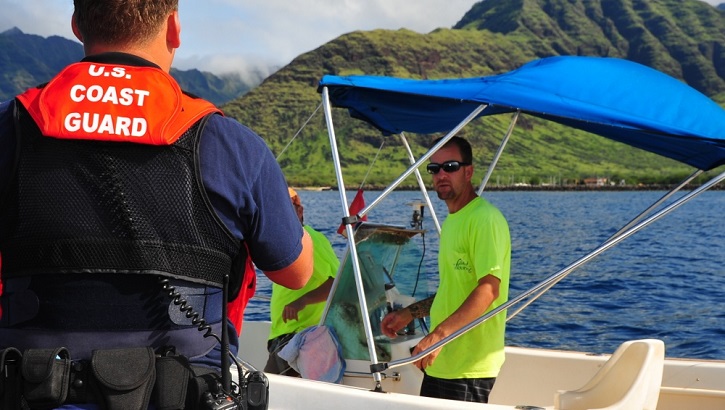
Remember these tips while enjoying the summer
Combat stress techniques help military providers during COVID pandemic
Article
7/6/2020
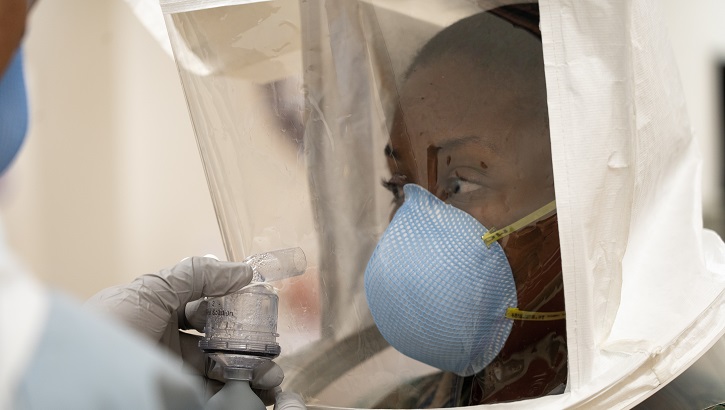
6 steps to get medical team members back in the fight
Pentagon leaders brief department's COVID-19 response to reporters
Article
7/2/2020
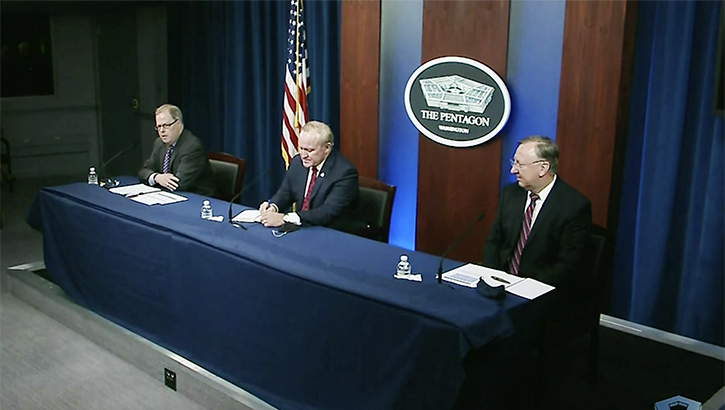
The COVID-19 pandemic affects each area of the nation differently. Local leaders at military installations decide protocols for public safety on a case-by-case basis. The Military Health System supports those leaders by providing health surveillance data, updated to reflect current information.





















.png)












No hay comentarios:
Publicar un comentario